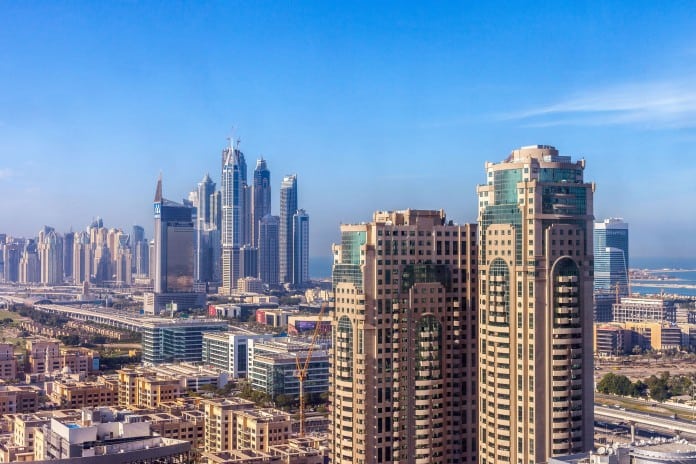
· -3.5% annual rate of change in values at the end of Q3 2015
· Rents stabilise with average rents across freehold areas down 3.2%
· Transactions creep upwards
· Affordability challenges remain
· Luxury segment officers good value-for-money
House price growth in Dubai appears to be slowing, with a bottoming out in the market likely to happen at the tail of 2016, according to international real estate consultancy Cluttons.
According to Cluttons’ Dubai 2015/16 Winter Residential Property Market Outlook, values for both apartments (-0.8%) and villas (-0.5%) dipped marginally during Q3, marking the fifth consecutive quarter of price falls. House price declines in the region of 3% to 5% are expected over the next 12 months, impacted by faltering global growth and supply levels creeping upwards. But at the same time infrastructure investments planned around the looming Expo 2020 will boost the rate of job creation and the rate of new households created.
Steven Morgan, CEO of Cluttons Middle East said: “We expect 7,400 units to complete in 2016, 10,300 in 2017 and a further 13,600 in 2018, with the new schemes launched during the past quarter, helping to even out the balance between villas and apartments. Over the next three years, 48% of the units delivered will be villas.”
The report highlights that away from the top end of the market, the vast majority of residential submarkets have seen little or no change in values this year. This is partly attributed to the steady appeal of apartments to the buy-to-let investment community and reflected in by the total number of apartment transactions during the first nine months of 2015 being 6.6% higher than the same period in 2014.
Morgan added: “We’ve seen the popularity of off-plan property sales persist, partly fuelled by the fact that off-plan residential property prices are often 20% to 30% lower than completed secondary stock, which in essence might allow buyers to bypass some of the stringent lending criteria and also possibly avoid the need for a mortgage altogether.”
Since the introduction of the Federal Mortgage Caps almost two years ago, the issue of affordability and accessibility to Dubai’s housing market has dominated headlines.























![The Square at Nad Al Sheba Gardens Now Open hope tax season treated you well! Just checking in—ready to refocus on growing your business? I remember how we discussed scaling your [specific aspect of their business, e.g., online presence] but paused due to time constraints. We now offer a streamlined 6-month plan that delivers real results without adding to your workload. Let me know if you'd like to chat—I’d love to help you pick up where we left off!](https://www.dubaichronicle.com/wp-content/uploads/2024/11/The-Square-5-218x150.jpg)








